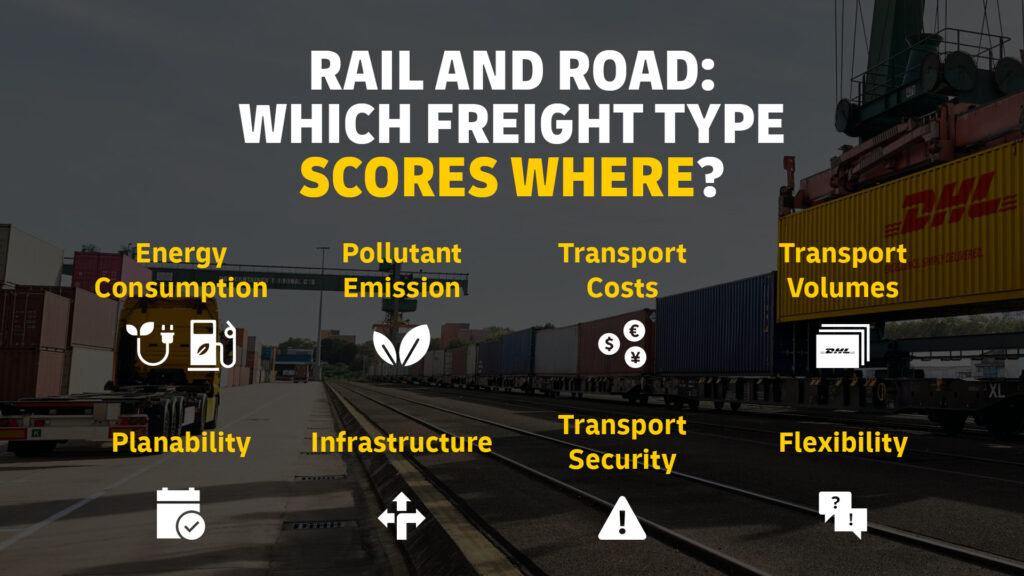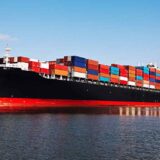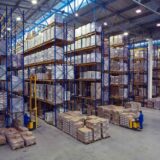Road Freight vs. Rail Freight: Which Works Best for Your Business?
March 7, 2024 0Logistics & Shipping Solutions
When it comes to transporting goods, businesses are often faced with the decision of whether to choose road freight or rail freight. Both have their advantages and challenges, and the best choice depends on your specific needs. At Logix Across, we’re experts in logistics, helping our clients navigate these options to determine the most efficient and cost-effective solution for their operations. Let’s break down the key differences between road and rail freight to help you make an informed decision for your business.
Road Freight: Flexibility and Speed
Road freight is one of the most commonly used methods of transportation for businesses of all sizes. Its primary advantages lie in its flexibility and speed, making it an ideal choice for many businesses, particularly those in need of door-to-door service.
Advantages of Road Freight:
- Flexibility: Road freight offers unparalleled flexibility. With a vast network of highways and roads, goods can be delivered virtually anywhere—whether it’s a local delivery or a cross-country shipment.
- Speed: Road freight is ideal for shorter distances or time-sensitive deliveries, with faster transit times for goods that need to get to market quickly.
- Last-Mile Delivery: Road freight excels in last-mile delivery, providing direct access to businesses or consumers without requiring multiple handoffs.
- Lower Initial Investment: For many businesses, starting with road freight is more affordable as it doesn’t require the infrastructure investments that rail transport demands.
Challenges of Road Freight:
- Cost: Long-distance road freight can be more expensive compared to rail, especially when fuel costs fluctuate.
- Environmental Impact: Despite improvements in fuel efficiency, road freight typically has a higher carbon footprint compared to rail.
Rail Freight: Economical and Environmentally Friendly
On the other hand, rail freight offers distinct advantages, especially for larger shipments and long-distance transport. It is known for being one of the most environmentally friendly and cost-effective methods of bulk transportation.
Advantages of Rail Freight:
- Cost-Effective for Large Volumes: Rail is an excellent option for bulk shipments and heavy cargo. It’s more affordable than road transport over long distances, especially when transporting large quantities of goods.
- Environmental Benefits: Rail freight is far more energy-efficient than road freight, producing fewer carbon emissions per ton-mile. For businesses focused on sustainability, rail is a greener alternative.
- Reduced Congestion: Rail freight isn’t subject to road traffic, offering a more reliable delivery schedule, especially for long-haul transport.
- Safety: Rail transport tends to be safer for bulk goods, with a lower risk of accidents compared to road freight.
Challenges of Rail Freight:
- Limited Accessibility: Rail can’t always provide door-to-door service. Your goods may need to be transferred to road transport at both the origin and destination points, potentially adding time and cost.
- Longer Transit Times: Rail shipments generally take longer compared to road transport, which can impact delivery timelines, especially for time-sensitive products.
- Infrastructure Limitations: Rail transport depends on the availability of rail networks, which can be sparse or non-existent in some regions.
Which Option Works Best for Your Business?
Choosing between road and rail freight depends on several factors specific to your business needs:
- For Smaller Shipments and Faster Delivery: Road freight is ideal for businesses that require frequent, small shipments or need flexibility in delivery locations. It’s also the best choice for businesses with a focus on fast deliveries to local or regional areas.
- For Large Shipments and Cost Savings: If your business involves the transport of large quantities of goods over long distances and cost savings are a priority, rail freight may be the more suitable option. It’s also a better choice for companies looking to minimize their carbon footprint and prioritize sustainability.
- For Balanced, Hybrid Solutions: Many businesses choose a hybrid approach, combining both road and rail freight. This allows companies to take advantage of the cost-effectiveness and environmental benefits of rail for long-haul shipments, while using road freight for the flexibility and last-mile delivery.
Logix Across: Your Logistics Partner for Road and Rail Freight Solutions
At Logix Across, we provide tailored logistics solutions that incorporate both road and rail freight to meet the diverse needs of our clients. Whether you’re looking for speed, cost-effectiveness, or sustainability, we’ll work with you to determine the best combination of shipping methods to optimize your supply chain.
Contact us today to learn more about how we can enhance your logistics strategy with the right mix of road and rail freight. Let’s find the perfect solution to move your goods efficiently and reliably!











